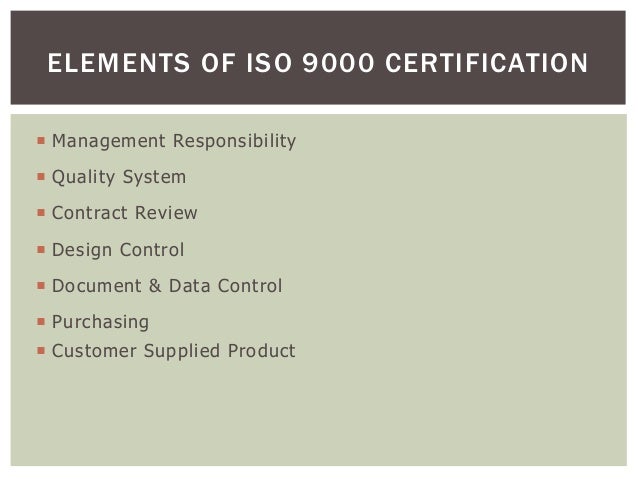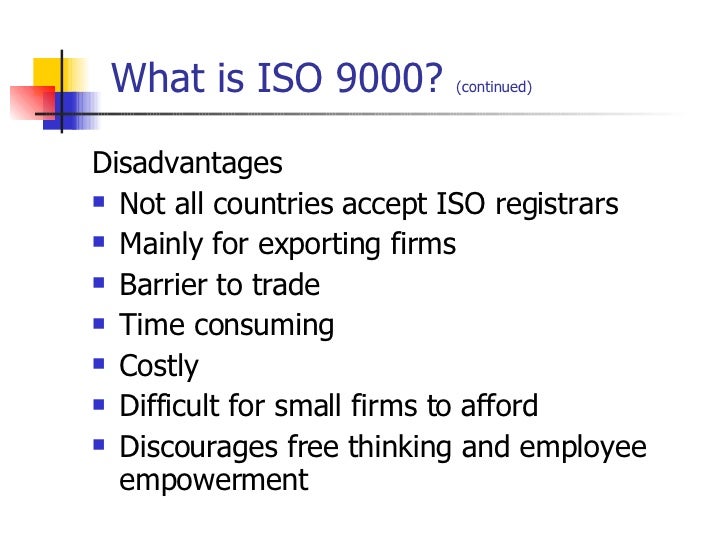
Photo by: contact ISO 9000 is a set of international standards of quality management that have become increasingly popular for large and small companies alike. 'ISO is grounded on the 'conformance to specification' definition of quality, ' wrote Francis Buttle in the International Journal of Quality and Reliability Management. 'The standards specify how management operations shall be conducted. ISO 9000's purpose is to ensure that suppliers design, create, and deliver products and services which meet predetermined standards; in other words, its goal is to prevent non-conformity.' Used by both manufacturing and service firms, ISO 9000 had been adopted by more than 100 nations as their national quality management/quality assurance standard by the end of 1997. This quality standard was first introduced in 1987 by the International Organization for Standards (ISO) in hopes of establishing an international definition of the essential characteristics and language of a quality system for all businesses, irrespective of industry or geographic location.
Initially, it was used almost exclusively by large companies, but by the mid-1990s, increasing numbers of small-and mid-sized companies had embraced ISO 9000 as well. In fact, small and moderate-sized companies account for much of the growth in ISO 9000 registration over the past several years. The total number of ISO 9000 registrations in the United States increased from a little more than 2, 200 in 1993 to more than 17, 000 in 1998; of those 17, 000 registrations, nearly 60 percent were held by companies with annual sales of $100 million or less. The increased involvement of small and midsized firms in seeking ISO 9000 registration is generally attributed to several factors. Many small businesses have decided to seek ISO 9000 certification because of their corporate customers, who began to insist on it as a method of ensuring that their suppliers were paying adequate attention to quality. Other small business owners, meanwhile, have pursued ISO 9000 certification in order to increase their chances of securing new business or simply as a means of improving the quality of their processes.
'The pressure for companies to become ISO 9000-certified is absolutely increasing and will continue to increase, ' predicted one management consultant in an interview with Nation's Business. 'The question many smaller companies have to ask is when, not if, they [will] get ISO 9000-registered.'
FURTHER READING: Buttle, Francis. Msts addon routes and trains msts indian railway. 'ISO 9000: Marketing Motivations and Benefits.' International Journal of Quality and Reliability Management. Johnson, P.L. ISO 9000: Meeting the New International Standards. McGraw-Hill, 1993.
ISO 9001 is the start of good things for your company’s efforts to gain better process control and improvement. By implementing the gains available through an ISO 9001 quality management system, you can build to even higher savings and improvements. If implemented properly, ISO 9001 will help you to get better insight in your processes, make a platform for continual improvement, enhance the reputation of your company and so on. For more information read this article: Six Key Benefits of ISO 9001 Implementation.
'An Innovative Approach to Make ISO 9000 Standards More Effective.' Total Quality Management. February 1998. Karapetrovic, Stanislav, Divakar Rajamani, and Walter Willborn.
